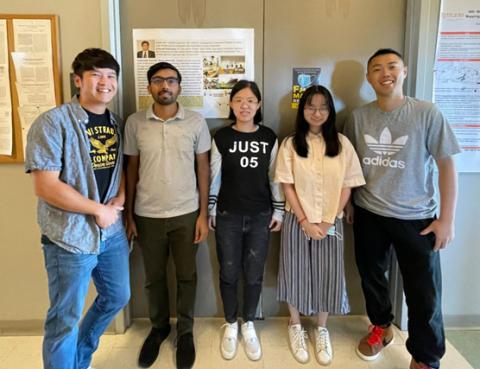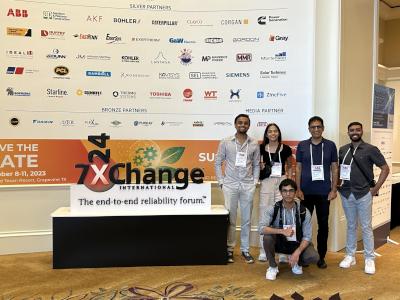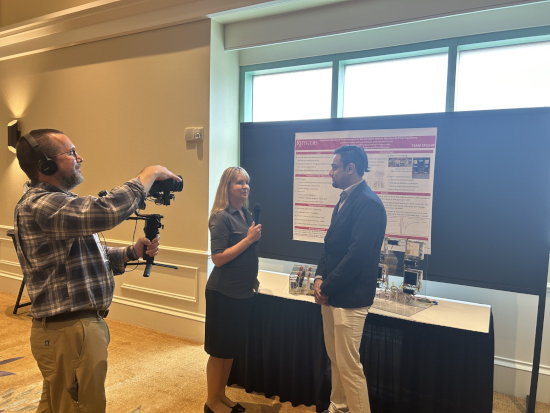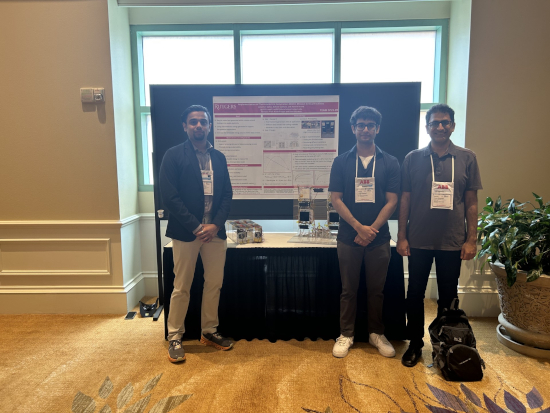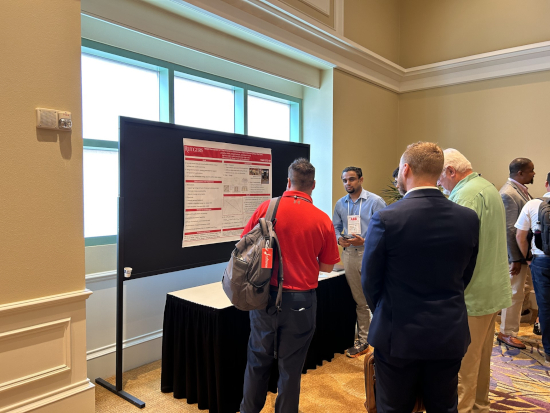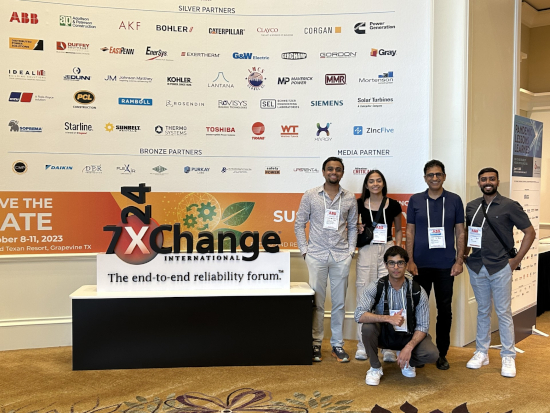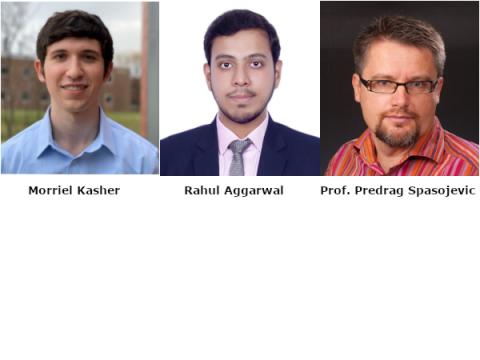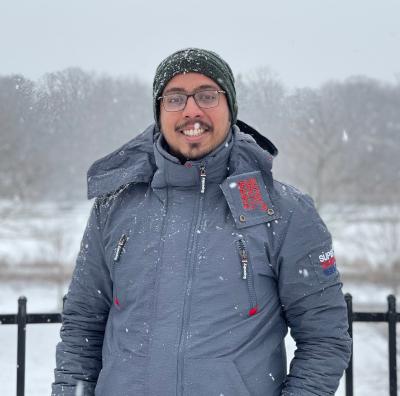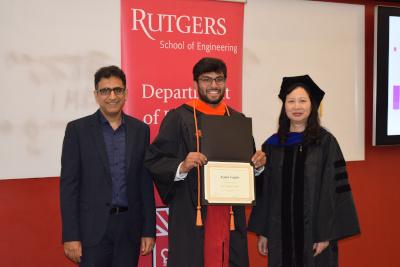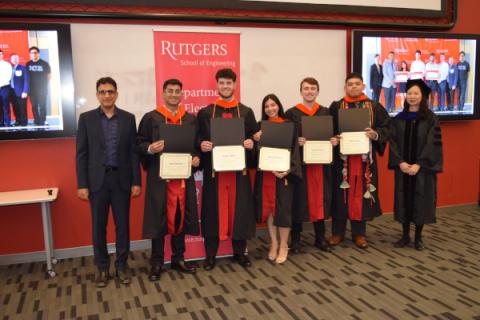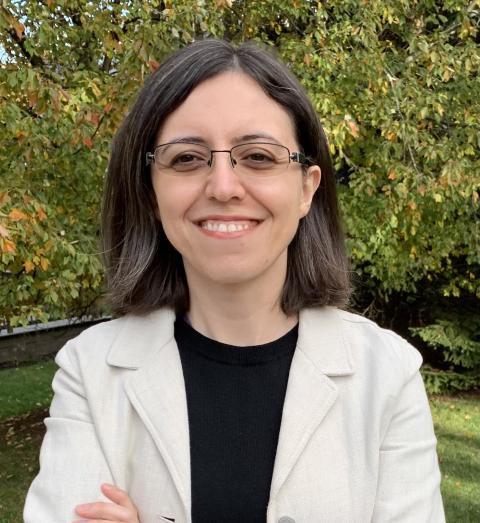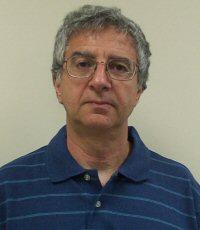ECE team won Best AI Innovation prize in the TE AI Cup 2022-23
The Electrical and Computer Engineering (ECE) Department at Rutgers is proud to announce that five of our doctoral students have been awarded the prestigious Best AI Innovation prize in the TE AI Cup 2022-23. The team, consisting of 5 ECE doctoral students—Yung-Ting Hsieh, Chuanneng Sun, Zhuoran Qi, Khizar Anjum (all from Prof. Pompili’s CPS Lab), and Ke Xia from Prof. Wei's lab—made significant contributions to real-world Artificial Intelligence (AI) applications, impressing the TE jury and earning recognition among their international peers.
The Rutgers team proposed novel neural network architectures and designed signal pre-processing methods to predict Channel Operating Margin (COM) parameters based on IEEE standards, which was a time-consuming process when using traditional model-based MATLAB scripts. Their work demonstrated significant potential savings in tester time and capital expenditure in high-speed tests, estimated at $12.5 million.
The team's success in the TE AI Cup, an international event hosted by TE Connectivity—an American Swiss-domiciled technology company specializing in connectors and sensors—underscores the excellence of our students and their ability to apply advanced AI practices in a competitive environment. The competition engaged 40 teams from 25 universities globally.
Congratulations to Yung-Ting, Chuanneng, Zhouran, Khizar, and Ke as well as to their advisors!

